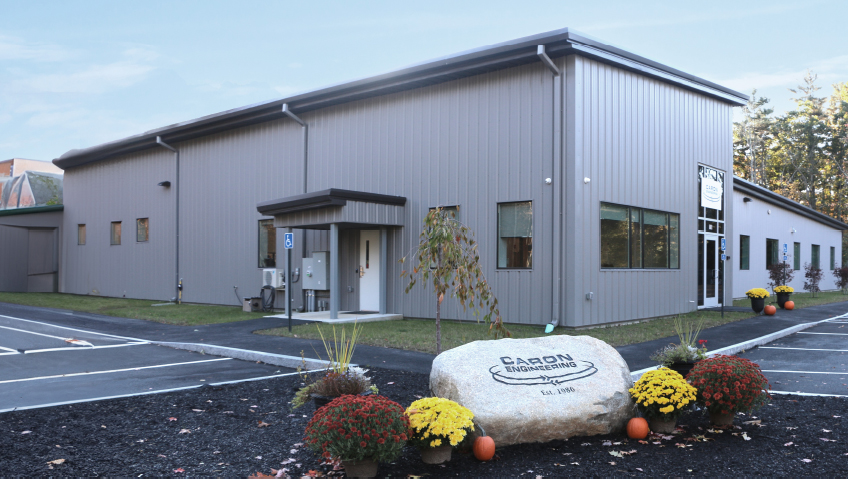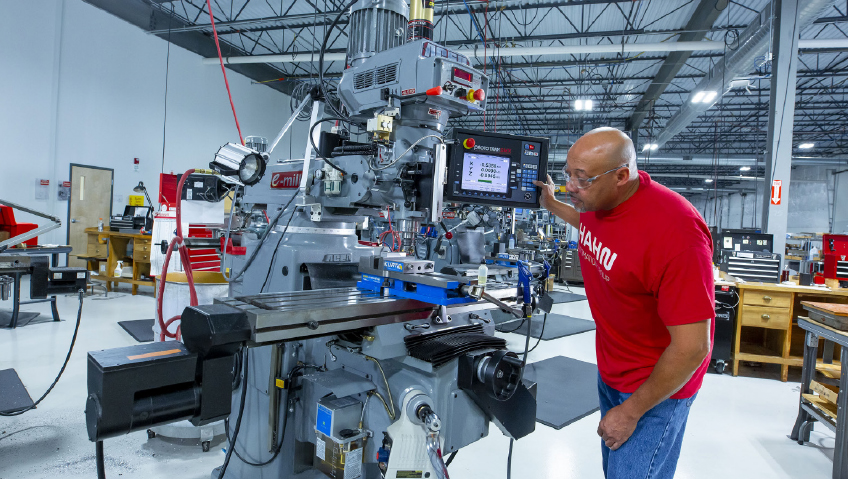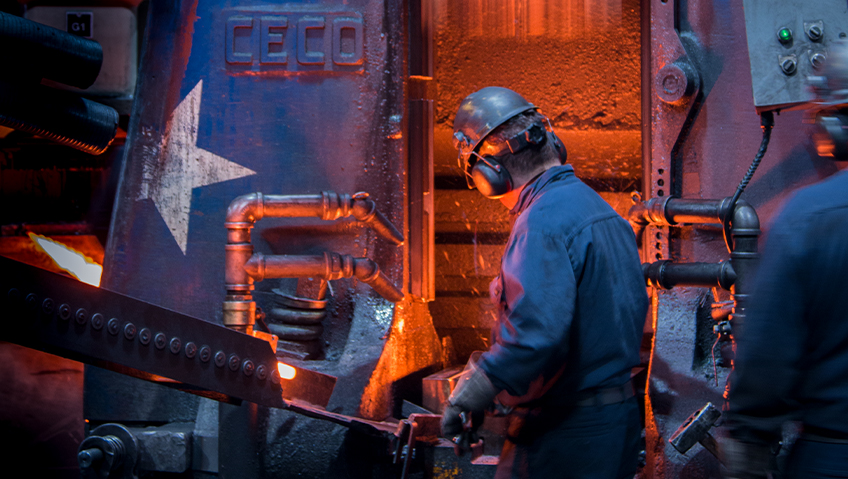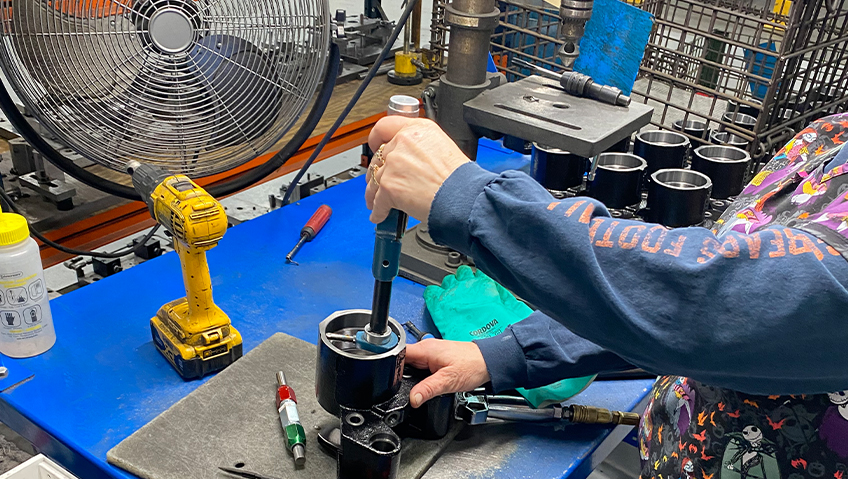Christmas may well and truly be behind us now, but for fabrication leaders in the know, there is a new Nutcracker Prince on the block. MiConnect, next-generation application-building technology, is the hot new toy—Caron Engineering’s sophisticated technology toolbox that answers an urgent industry call.
For fabricators who have ever wished to self-build applications to suit their unique manufacturing processes, the dream has, at long last, materialized, thanks to Caron Engineering, the solutions provider for big-name fabricators like GE Aerospace, John Deere, medical device giant Zimmer US, and others who can now build and own applications that integrate perfectly into existing systems.
The Caron suite of solutions has practically every function fabricators could ever need. “We have a tremendous knowledge of CNC communications. Our customers don’t have to know computer programming; we’ve given them the background knowledge embedded in this toolkit to do that automatically,” explains Rob Caron, President. “There are not many companies in the world that have the experience that we have in computer numerical control,” he adds with a smile.
Caron Engineering has provided customers with top-notch fabrication software for nearly four decades, introducing MiConnect to the open market in 2021. Today, its software is giving fabricators the control and creative freedom to build the applications they want easily and without the time and money involved in hiring third parties to do it. Gone are the days of being forced to hire computer coders to develop fabrication applications.
As with most timeless solutions, the idea for MiConnect was born of necessity. “Around 2010, we were spending so much time writing applications and computer programs. For our own needs, it [was] much nicer to create a toolbox that was much easier to quickly develop applications. Then we eventually started selling that concept,” Rob Caron says of the product that stands to revolutionize application development in the industry forever.
At home in Maine, with a showroom and technology center in Austin, Texas, Caron Engineering serves fabricators globally as far afield as Poland and Asia thanks to its trusted German representative of nearly 30 years, BLUM. As a smart-technology developer for the computer numerical control (CNC) tooling industry, Caron Engineering’s products are prized for next-generation innovation that supports the manufacturing industry in ways that many technology developers have not even thought of, like enabling manufacturers to determine how their applications function and to own them.
MiConnect also helps fabricators circumvent and solve the complexities of communication between devices, supervisory systems, and workshop systems by creating effective networking loops that ease fabrication processes while improving communication and product turnaround speed. The efficacy of the software is impressive, with the company working ceaselessly to provide customer support via the training it offers to a global network of systems integrator firms that are also growing at a healthy pace.
But MiConnect is not the company’s first star product, however. The first in its stable, and traditionally its best-seller, TMAC, is a tool monitoring adaptive control product, introduced not long after the dawn of 1990. Having been through its own process of evolution, these days TMAC acts as a background monitoring system for systems generally unattended by humans. Caron’s next product, AutoComp, which performs automated tool wear compensation, is a software suite that works in tandem with TMAC, adjusting tool offsets automatically to protect against machine deviations and the like.
This technology is essential to many fabricators because, while we may commonly refer to robotics as artificial intelligence, it could also be described as automation intelligence, saving end users money by protecting equipment and product runs. “As the entire manufacturing industry moves toward automation, our products are essential to allow machines to run in an automated mode—especially now that there are not the eyes and ears of humans around anymore to see all the issues going on,” Caron says.
Another of the company’s best-sellers is ToolConnect, a radio frequency identification (RFID) chip, or 2D barcode tracker tag, used in tool holders to identify the correct tools for use through preset data running between a machine and CNC control while eliminating the need for human supervision—all fine-tuned to integrate into customers’ exact processes. Its selection includes several equally smart products developed to make manufacturing more cost-effective and efficient, true to the company’s legacy of looking beyond the obvious for ideas.
Opening its doors in November 1986, knowledge at the company has traditionally been passed from one generation of staff to the next. Even now, trainee service technicians spend up to a year honing their skills before fully joining the workforce.
“We have become the go-to company, but it is really all the employees who are taking pride and ownership [in being] the best in what we do,” says Caron, who worked as an engineering manager at a machine tool firm before starting his own company. The decision was spurred by the foreclosure of the firm he worked for at the time—upon his return from Thanksgiving. It was an era of possibility and Caron chose to bite the bullet by going solo. It was a big undertaking. Beginning in a basement, his imagination took hold of his technical skills. And before he knew it, he was well on his way to establishing a healthy trade—alongside a few key people without whom things may have turned out much differently. For this, Caron is of course very grateful.
The company registered under an employee stock ownership plan (ESOP) in 2018, and its staff of 35 became stakeholders in the company’s success. “Maine as a state is known for hardworking people. I think our company shows that well. I’m very proud of what they all do every day and how hard they work… They take their jobs very seriously,” Caron adds. There is a lot to be said for this level of dedication.
To ensure that it has a solid stock of recruits for the future, the company supports a local community college that provides training of all sorts, including management courses. In addition, Caron Engineering is known for supporting students in gaining further education. The company also gives back to local charities by donating electronic devices to an organization that supports youngsters suffering from cancer in Maine, alongside other causes.
Looking at the industry in its current context, Caron describes the fabrication and engineering world as “just not having enough people right now.” Of course, this fact becomes a challenge when attempting to install new technology—the same technology that is being installed due to a labor shortage. “Everyone wants to move to automation because they have to and it’s the way to move forward. But there are not enough companies doing automation now. It is getting more challenging for them to find people,” he says.
Well-stocked with a powerful collection of new technology developed during the pandemic, Caron Engineering’s sales trajectory is going nowhere but up. As it has won several awards for best business practices, it would be safe to say that Caron Engineering knows how to handle growth; and with the return on investment of its technology being as impressive as it is, growing sales are a given.
“Everybody talks about Industry 4.0; we have been doing Industry 4.0 for 38 years,” Caron says. By increasing its work with artificial intelligence and continuously improving its offering to suit customers’ needs, Caron Engineering is paving the way for more new and exciting technology to change the local and foreign fabrication landscapes—for good.






